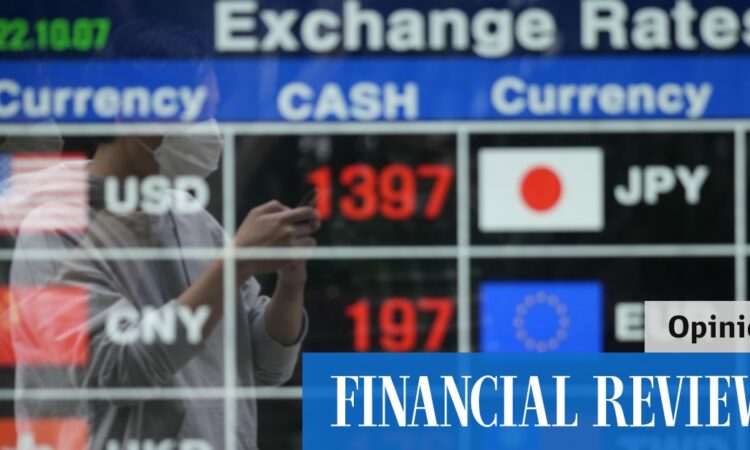
Almost no one expects Washington to do this because Biden aides have made clear they aim to help the Federal Reserve fight inflation in the US and believe that a strong $US helps contain inflation by making imports less expensive. This logic is widely accepted.
It’s also largely wrong. Imports amount to 12 per cent of gross domestic product in the US, about a third the average for developed countries, and have a minor effect on US prices.
More importantly, the dominant $US is used to price most global goods including 95 per cent of US imports. Thus, a change in the value of the dollar does little to change the price Americans pay for these imports.
This immunity is rare. Other countries pay more bills in foreign currencies and are more vulnerable to currency swings. When the dollar falls by one per cent, inflation rises in the US by just 0.03 per cent.
When other currencies fall that far, inflation rises three times faster in other developed economies, and up to six times faster in emerging economies.
The key point is that the Biden administration could help to weaken the dollar without undermining the Fed’s effort to contain US inflation. In fact, America faces less risk from the dollar’s imaginary impact on US inflation than from its proven impact on the global economy.

America faces less risk from the dollar’s imaginary impact on US inflation than from its proven impact on the global economy. Bloomberg
Before last week the $US had spiked more than 20 per cent in 12 months, matching or exceeding surges that accompanied the last seven major global financial meltdowns going back to the Latin American debt crisis of the early 1990s, and including the dotcom bust of 2001 and the global financial crisis of 2008.
These crises engulfed multiple countries including the US, disproving another piece of received American wisdom – that a strong dollar is a “problem” only for the rest of the world.
This year two out of three central banks in the emerging world are selling dollars, a record share since at least 2000. Japan has joined them, intervening directly in the currency market for the first time in a quarter-century. But piecemeal national efforts to bolster their own currencies have less impact than co-ordinated intervention.
Since central banks including the Fed cannot – should not – stop raising interest rates until inflation is clearly under control, co-ordinated selling is the only tool left to ease the dollar-induced stresses still visible worldwide, from low-income countries to Europe.
US-led efforts to weaken the dollar have generally proved successful in the post-Bretton Woods era, particularly when these conditions are met: the dollar is seriously overvalued; speculators are heavily long the dollar; co-ordinated government intervention hits markets as a surprise; and central banks’ monetary policy is pushing currencies in the same direction.
Today chances of success are good. Though Fed policies are pushing up the dollar, it is now seriously overvalued, fuelled by high speculative positions, and co-ordinated intervention, which would be led by the US Treasury, would come as a shock.
Normally government meddling in currency markets is ill advised, but the dollar remains at irrational highs – by one measure nearly 40 per cent more expensive than at any point since 1980 – and a further rise could trigger a global recession.
The Biden administration has everything to gain by moving now. By acting to protect the US from the real risk of global recession rather than the imaginary risk of dollar-driven inflation, it would earn the plaudits of a world reeling from the administration’s hands-off dollar policy.
The writer is chairman of Rockefeller International
Financial Times



